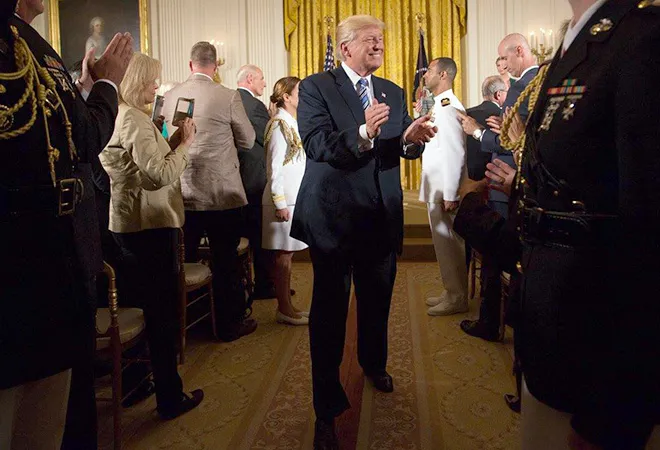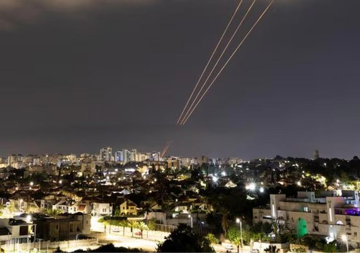Chaos continues to be the name of the game in Washington. The Donald Trump administration has been in office for more than six months now and it shows few signs of being in control. Changes even at the highest echelons are happening at a speed rather difficult to follow, and the lower rungs of bureaucratic appointments remain curiously vacant. Presidential tweets are now changing policies even as America's long standing global commitments seem up in the air.
General Joseph Dunford, chairman of the US Joint Chiefs of Staff, had to send a note to officers last week saying that there were no immediate plans to change the Pentagon's transgender policy, following the US President's tweets about banning trans personnel in the US military. On the other hand, the State Department seems ready to scale back its diplomatic presence at this year's annual United Nations summit in September. Though it is being sold as a cost-saving initiative, it will underline Trump administration's attempts to retreat from global diplomacy for the rest of the world.
The White House and the Republicans in the US Congress often seem to be working at cross purposes with the President making no real effort to shape public policy outcomes like his predecessor. Meanwhile, North Korea launched its second intercontinental ballistic missile last week, deepening worries about Pyongyang's missile programme, and with it, the regime's ability to top a nuclear warhead on one of those missiles. With up to 30 nuclear weapons and missiles that can strike US bases and allies in Asia, Pyongyang is now ready to challenge the US like never before. Trump's reaction to the latest North Korean launch came on Twitter where he wrote that he was "very disappointed" in China and that Beijing had done "nothing" for the US with regard to North Korea.
Amidst this shambolic performance, US-India ties do seem to have been put on an even keel by Prime Minister Narendra Modi's visit to the US in June. He managed to move the bilateral relationship towards the strategic plane from a purely transactional one. To a large extent, it is the US-India growing bonhomie that lies at the heart of Chinese aggressive posturing at Doklam. So far, Washington has avoided taking a direct position on the issue but a hardening of the US posture vis-à-vis China would serve India well.
At the regional level, the Trump administration is on the verge of greenlighting an increase in the number of American troops in Afghanistan though the US President is still to make up his mind whether to commit to Afghanistan for the long haul. There are discussions about a seemingly better option being a large drawdown in US forces with an increased focus on counterterrorism, rather than counterinsurgency. Recent weeks have witnessed a rising tide of violence across Afghanistan and the Taliban is readily using the attacks in Kandahar to create supply routes back into Pakistan.
Against this backdrop, a bipartisan group of American senators have last week called for greater cooperation with India in Afghanistan. In a change from the past, Washington is now very comfortable with India taking on a greater role in helping Afghan security forces. Calling for trilateral security and civilian cooperation between India, Afghanistan and the US, the US Congress wants the US Department of Defense to promote security and stability in Afghanistan that "aligns with the mutual interests" of Afghanistan, India, and the US.
These developments underscore that despite a White House mired in multiple domestic crises, the rationale for strong ties with New Delhi remains as potent as ever in Washington. But it is equally true that given President Trump's personal predilections, India should also be ready to fight its own battles.
This commentary originally appeared in DNA.
The views expressed above belong to the author(s). ORF research and analyses now available on Telegram! Click here to access our curated content — blogs, longforms and interviews.




 PREV
PREV


